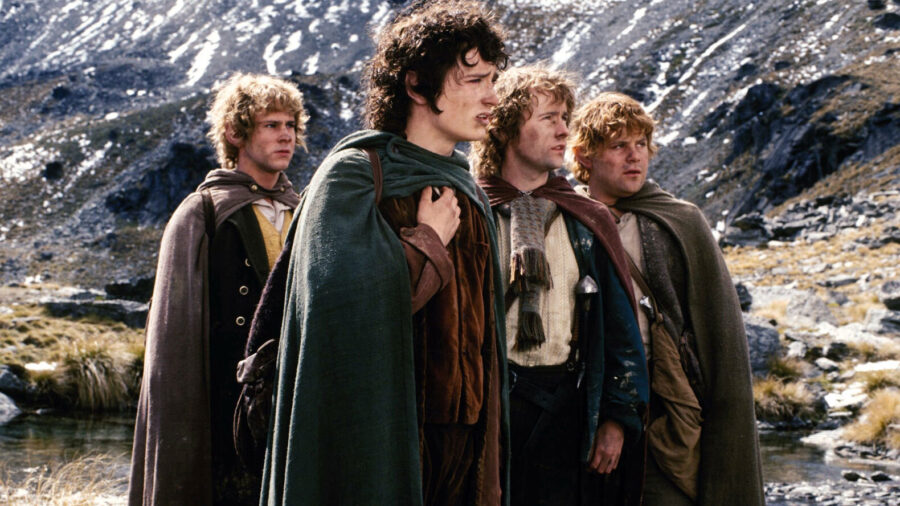Lord Of The Rings Worst Change From Book To Screen

The cinematic adaptation of J.R.R. Tolkien’s epic fantasy masterpiece, The Lord of the Rings, directed by Peter Jackson, undoubtedly ranks among the greatest achievements in film history. However, no adaptation is without its creative liberties, and one such omission has stood out as arguably the worst change from book to screen: the exclusion of The Scouring of the Shire.
Peter Jackson’s Lord of the Rings trilogy is a classic, but fans of the books argue he left out the most important part: The Scouring of the Shire.
In the 22 years since the first of Jackson’s Lord of the Rings trilogy was released, the films have become beloved cinematic classics. There is plenty that Jackson did right in his direction, including casting incredible actors like Sir Ian McKellen, Viggo Mortenson, and Elijah Wood, implementing stunning visual imagery and effects to bring the world of Middle Earth to life, and achieving the seldom successful feat of adapting a beloved book series into a set of movies that not only fans deemed acceptable, but that has developed one of the biggest fan bases of any movie franchise.
But Jackson could have taken it one step further by including one more very important aspect.
The Scouring of the Shire is not just another chapter in The Lord of the Rings; it is a microcosm of the entire narrative’s themes and character development. This chapter follows the return of Frodo, Sam, Merry, and Pippin to the Shire after their long journey to destroy the One Ring. However, what they find is a Shire drastically changed, oppressed by a malevolent force named Sharkey.
While the Lord of the Rings movies work without the Scouring, the omission left some viewers — those of us who knew how Tolkien ended the story in the books — feeling that the film’s ending was somewhat abrupt.
Jackson left out The Scouring of the Shire from his Lord of the Rings film adaptations because it was “anti-climatic,” however, many of Tolkien’s critics claim that this chapter is one of the most important chapters of the trilogy, partly due to the final character development of our four favorite Hobbits.
They return as heroes, and it is through their actions in liberating the Shire that we see the depth of their transformation. Once simple Hobbit-folk who were reluctant to go on an adventure, Frodo, Sam, Merry, and Pippin have become brave and self-assured individuals with the power to save their homeland.
Home is a central theme in Tolkien’s work. The Shire represents an idyllic home, and the Scouring of the Shire underscores how the external world can threaten and change what is dear to us. The Lord of the Rings films lose a significant part of this thematic depth without this chapter, focusing more on the external journey rather than the satisfying internal transformation of the characters.
The inclusion of the Scouring of the Shire would have provided additional closure to the story. After the epic battles and the destruction of the One Ring, the Shire’s liberation would have given audiences a sense of catharsis and completeness. While the Lord of the Rings movies work without the Scouring, the omission left some viewers — those of us who knew how Tolkien ended the story in the books — feeling that the film’s ending was somewhat abrupt.
True, Jackson changed Faramir’s character, who, in the books, was never tempted by the One Ring, and the absence of Tom Bombadil is sad for fans who enjoy the whimsical narrative in Fellowship of the Ring.
While other changes were made in the films, such as Faramir’s temptation, the absence of Tom Bombadil, and Saruman’s altered death scene, the exclusion of the Scouring of the Shire stands out as the most significant. True, Jackson changed Faramir’s character, who, in the books, was never tempted by the One Ring, and the absence of Tom Bombadil is sad for fans who enjoy the whimsical narrative in Fellowship of the Ring. But no other change affected The Lord of the Rings at its narrative core as profoundly as the absence of the Shire’s scouring.
In Peter Jackson’s monumental adaptation of The Lord of the Rings, the decision to omit The Scouring of the Shire stands out as the most regrettable change from the source material. This omission impacted character development, thematic depth, closure, and the overall faithfulness to Tolkien‘s narrative. While the films undoubtedly shine in many aspects, this change has left a lasting void for fans of the books who know what could have been.










